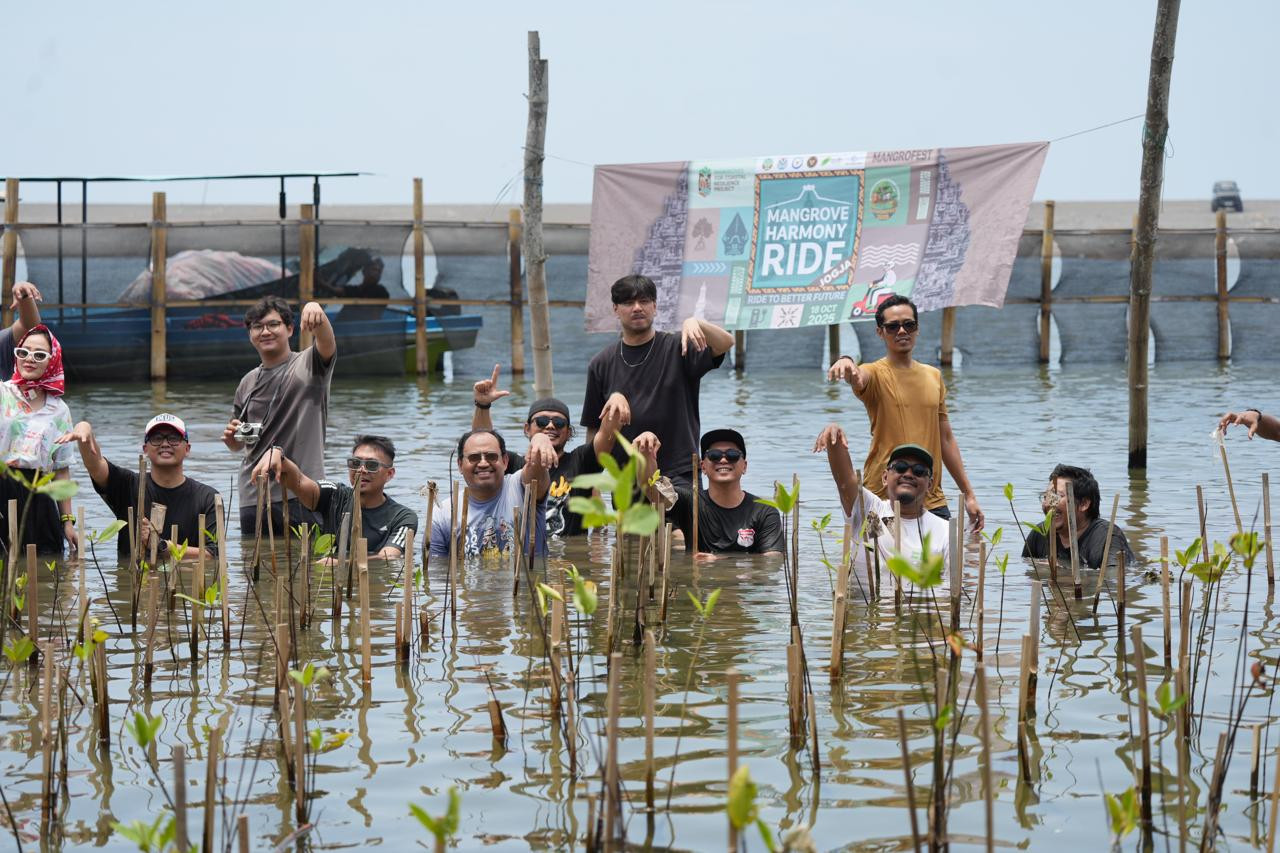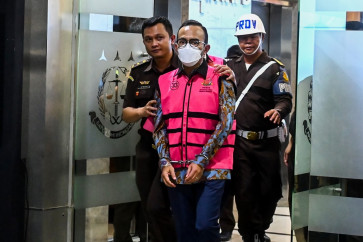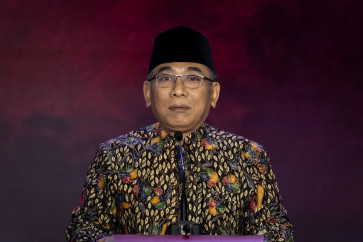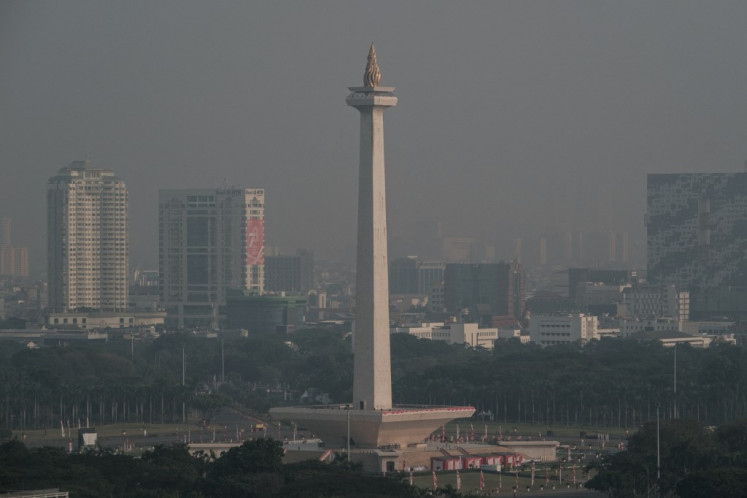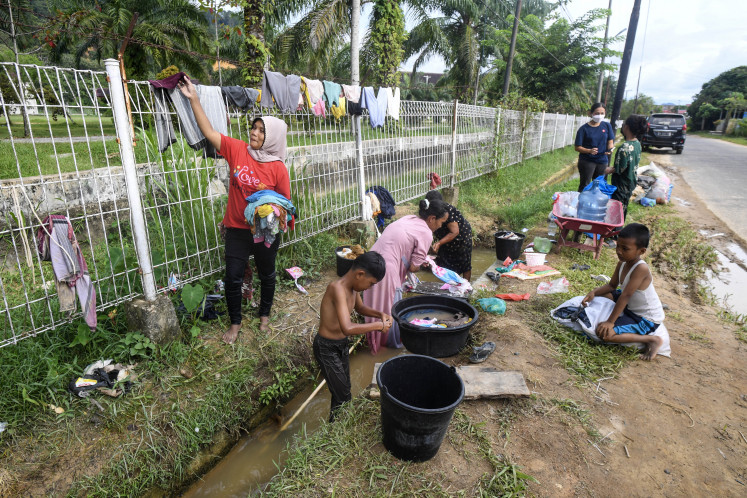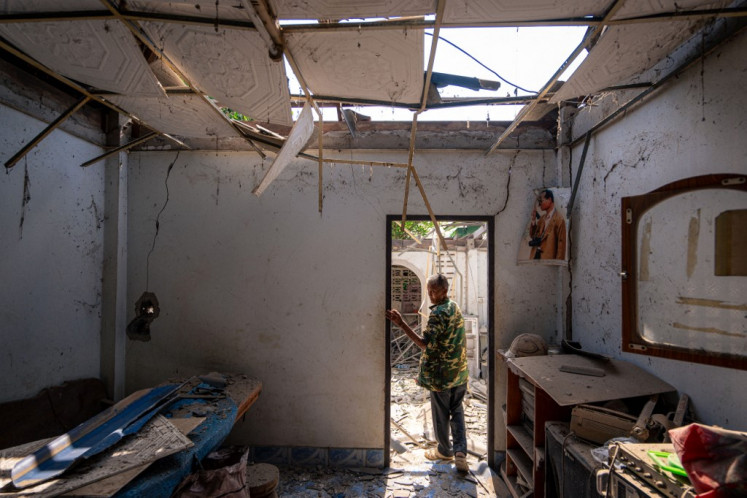Popular Reads
Top Results
Can't find what you're looking for?
View all search resultsPopular Reads
Top Results
Can't find what you're looking for?
View all search resultsMangrove Harmony Ride Yogyakarta shows collaboration for coastal resilience, green energy
Change text size
Gift Premium Articles
to Anyone
T
he Forestry Ministry’s Directorate General of Watershed Management and Forest Rehabilitation (PDASRH), through the Mangroves for Coastal Resilience (M4CR) program, once again held the Mangrove Harmony Ride at Baros Beach, Bantul Regency, Yogyakarta on Oct. 18.
Following a successful run in Banyuwangi, East Java, the event convened several parties in a spirit of cross-sector collaboration to strengthen coastal resilience and support the green energy transition. The Mangrove Harmony Ride Yogyakarta served as a platform for synergy between nature conservation, green energy innovation and the economic empowerment of coastal communities.
By involving the Elders Elettrico electric motorcycle community in the conservation movement, the event also engaged the younger generation and urban communities in the spirit of #HijrahEnergi and #HijaukanIndonesia, inviting the public to contribute through concrete actions and a sustainable lifestyle.
In his remarks, the secretary of the Forestry Ministry’s Directorate General of PDASRH Muhammad Zainal Arifin said the coastal area of Baros is a concrete example of how mangrove management can go hand in hand with community economic empowerment.
“This spirit aligns with the transition to renewable green energy, where nature conservation and clean energy innovation combine for a sustainable future," he said, adding that the ecotourism and mangrove-derived product management model in Baros can serve as a role model for implementing mangrove rehabilitation in the four priority M4CR provinces of North Sumatra, Riau, East Kalimantan and North Kalimantan.
A national initiative by the Forestry Ministry and the World Bank, the M4CR program aims to rehabilitate a combined 41,000 hectares of mangroves by 2027, prioritizing cross-sector collaboration, community participation and the implementation of environmentally friendly innovations.
Tirtohargo village chief Sugiato expressed his support for the M4CR initiative and highlighted the important role of Village-Owned Enterprises (BUMKal) in Baros.
"We are grateful that the Baros area has received attention through this activity. Through BUMKal, the community manages ecotourism and develops mangrove-derived products such as batik and processed foods in an effort to protect the environment and improve the welfare of coastal residents," he said.
Furthermore, the Baros community is also active through the Baros Youth Family (KP2B), which focuses on water conservation and planting various mangrove species, such as Avicenna, Sonneratia, bruguiera and nipa palm. These efforts are an important foundation for maintaining the balance of the Baros coastal ecosystem.
The involvement of women's groups also strengthens mangrove management in Baros through the development of batik, processed foods and crafts made from mangrove waste, which support the local economy while preserving the coastal environment.

